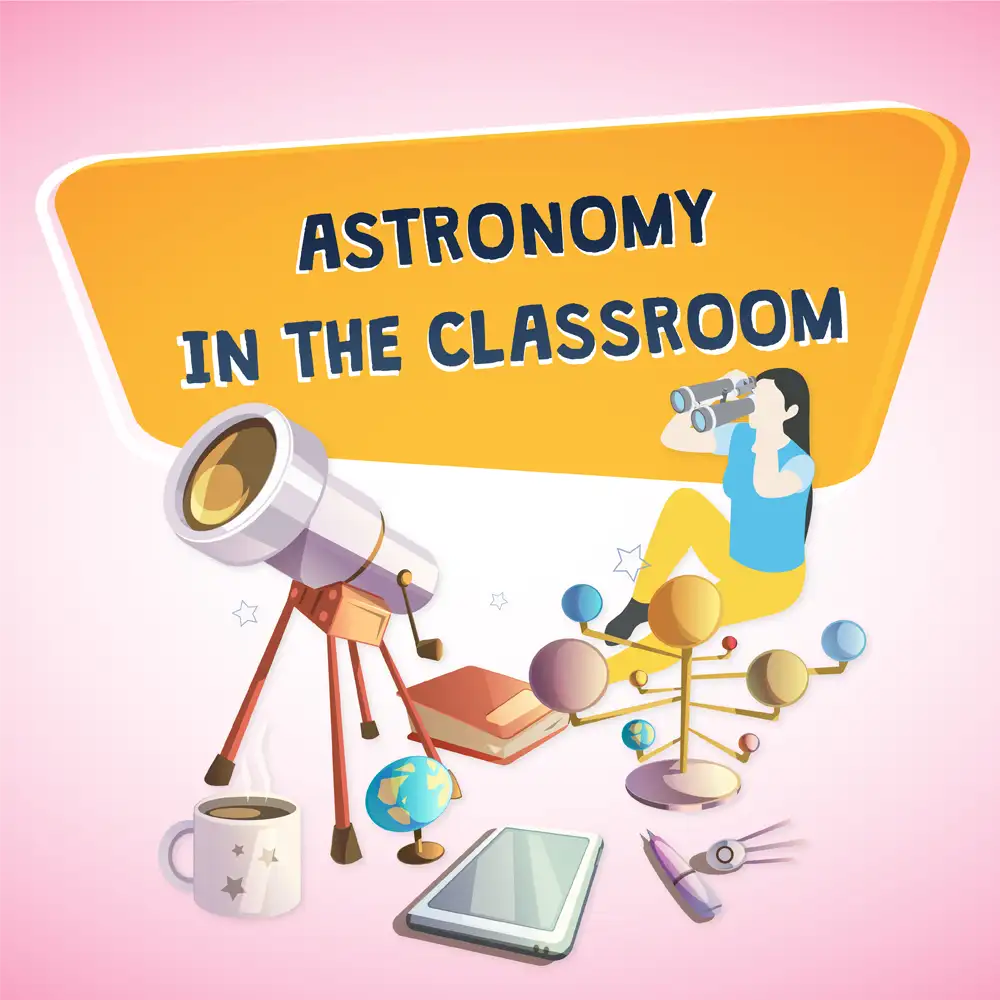DERMEN ERASMUS TRAINING COURSES

- #ASTRONOMY IN THE CLASSROOM

Course Content:
Astronomy is one of the most exciting and rapidly evolving branches of science. Historically, not only scientists and students, but the general public has been very much interested in the achievements and advances of this science. Students are fascinated to understand different astronomy topics, such as the sunrise and sunset, the phases of the moon, the changing seasons, the appearance of comets, eclipses of the Sun and Moon, the motion of planets in the starry sky.
- Astronomy can be used for interdisciplinary courses in science. For instance, many physics concepts are used (gravitation and relativity, light and spectra) in the study of astronomy. Also, a geography course can provide obvious examples of comparative planetology. In fact, studying the basic motions of skies can help students apply math to the ancient craft of navigation and time-keeping
- Astronomy brings the scientific method in the classroom. Astronomers understand the universe by comparing its observed appearance with the predictions of theories or models; they cannot understand stellar life cycles, for instance, by breeding star. As pupils study the methods of astronomer, they get familiar with experimental and observational models in science that provides the scientific investigation
- Astronomy, unlike other sciences, can become a hobby. It is hard to turn biology, chemistry, or physics into casual hobbies. Astronomy, on the other hand, it can be studied nearly anywhere in the world without any technical equipment.
In our structured course, participants will be able to be aware of the need for promoting teaching and learning astronomy and space science in STEM classrooms and other,at all levels and for every school level.We will search for innovative practices resources and scenarios.
Finally, our participants will have a great opportunity to visit an OBSERVATORY in Istanbul.
Objectives:
- To introduce students to the fascinating field of astronomy, fostering curiosity and interest in the study of celestial objects and phenomena.
- To familiarize students with the fundamental concepts of astronomy, including the solar system, stars, galaxies, and the universe’s structure.
- To enable students to develop essential scientific skills, such as observation, data analysis, and critical thinking, through hands-on astronomy activities.
- To promote interdisciplinary learning by exploring the connections between astronomy and other scientific disciplines, such as physics, chemistry, and geology.
- To enhance students’ spatial reasoning and quantitative abilities, as they learn to comprehend the vast distances and sizes in the universe.
- To instill an appreciation for the historical and cultural significance of astronomy in various civilizations throughout history.
- To encourage students to explore current astronomical discoveries and research, nurturing their curiosity about ongoing space missions and astronomical exploration.
- To provide opportunities for students to engage in stargazing and night sky observation, cultivating a sense of wonder and awe about the cosmos.
- To utilize technology and astronomy-related software and tools, enabling students to visualize celestial objects and conduct virtual astronomical observations.
- To promote collaborative learning experiences, encouraging students to work together on astronomy projects and presentations.
- To empower students to communicate their understanding of astronomy through oral presentations, written reports, and multimedia presentations.
- To raise awareness about the importance of preserving dark skies and reducing light pollution to support astronomical observation.
- To foster an understanding of space exploration and potential career paths in astronomy and related fields.
- To encourage inclusivity and diversity in astronomy, ensuring that all students feel welcome and represented in the subject matter.
- To inspire future generations of astronomers, scientists, and space enthusiasts, nurturing a passion for lifelong learning and curiosity about the cosmos.




